Galley or L-shaped? Read on to find out which kitchen layout is perfect for you.
Galley
A galley is what the kitchen on a ship is called. It’s characterised by its efficient layout where there are parallel counters. Best used in small, confined spaces. The total distance in between the three points – hob, sink and the refrigerator – should be no less than 3m. You can also makes full use of the space with full upper and lower cabinets.
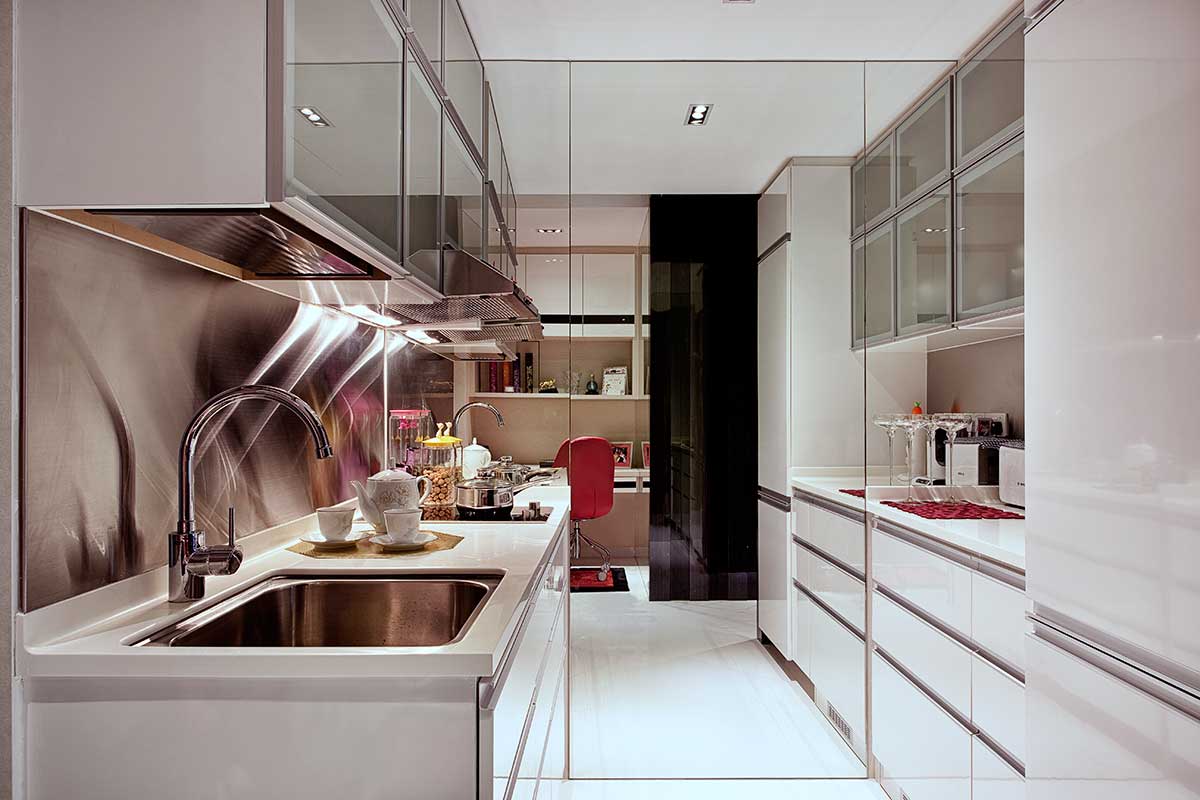
Image credit: De Style Interior
L-shaped
The L-shaped kitchen is perhaps the most common given the spatial layout of most apartments in Singapore. You will see this layout used in rectangular kitchens, where one countertop arm can go as long as you want.
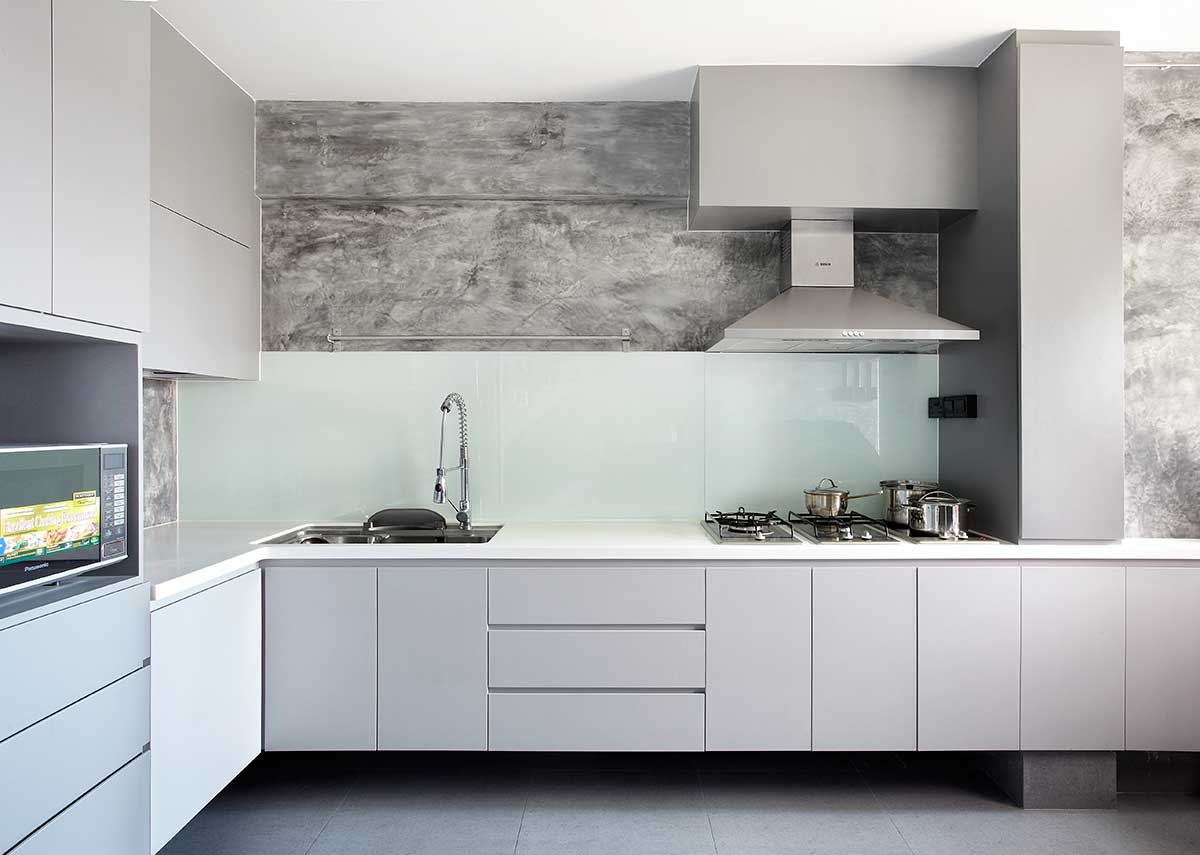
Image credit: Free Space Intent
Horseshoe
Named for the U shape it creates, the horseshoe kitchen provides the most storage and countertop space. It’s most suited for larger kitchen spaces, but can be employed in small kitchens too. If you already have enough worktop space, consider full height solutions like these to frame the space.
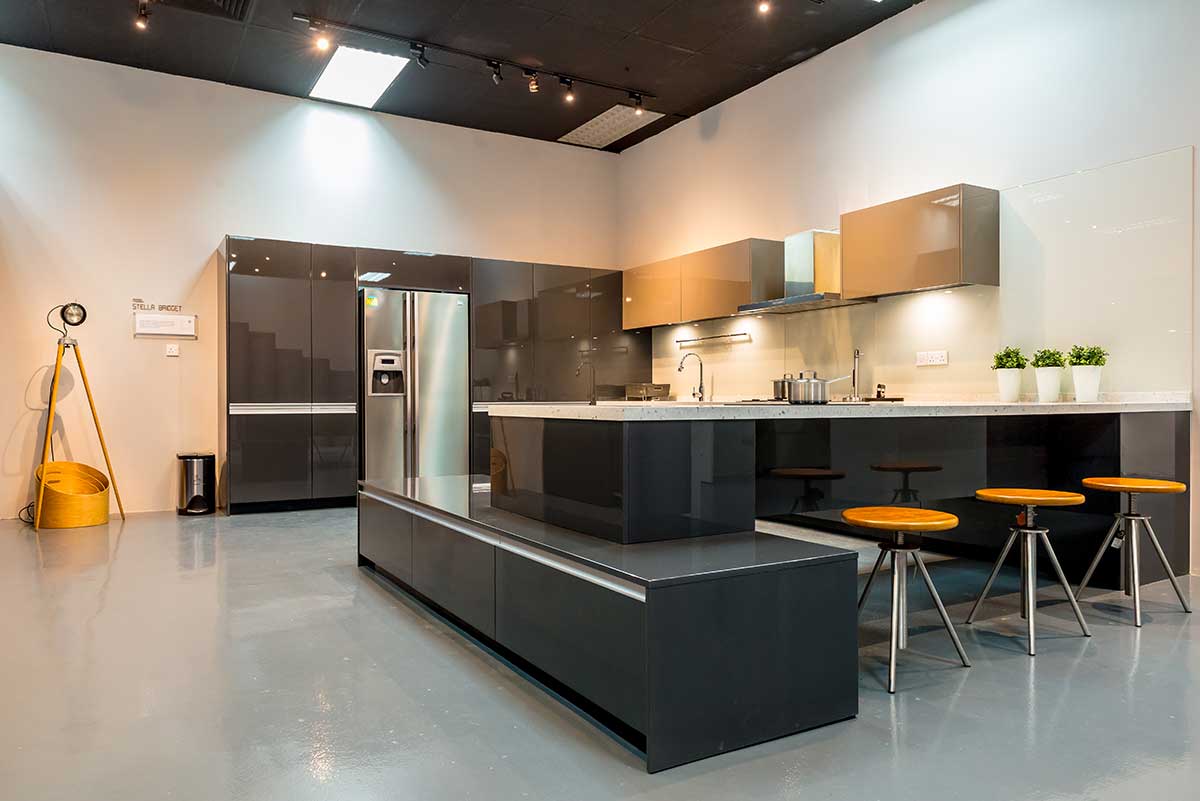
Image credit: KCUBE
Island
A kitchen island is great for cooking, food preparation and other purposes. In a small kitchen, however, islands can be impractical. Note that a kitchen island can significantly increase your renovation expenses too.If you require plenty of storage and prefer full height storage units, an island serves as the central workspace.
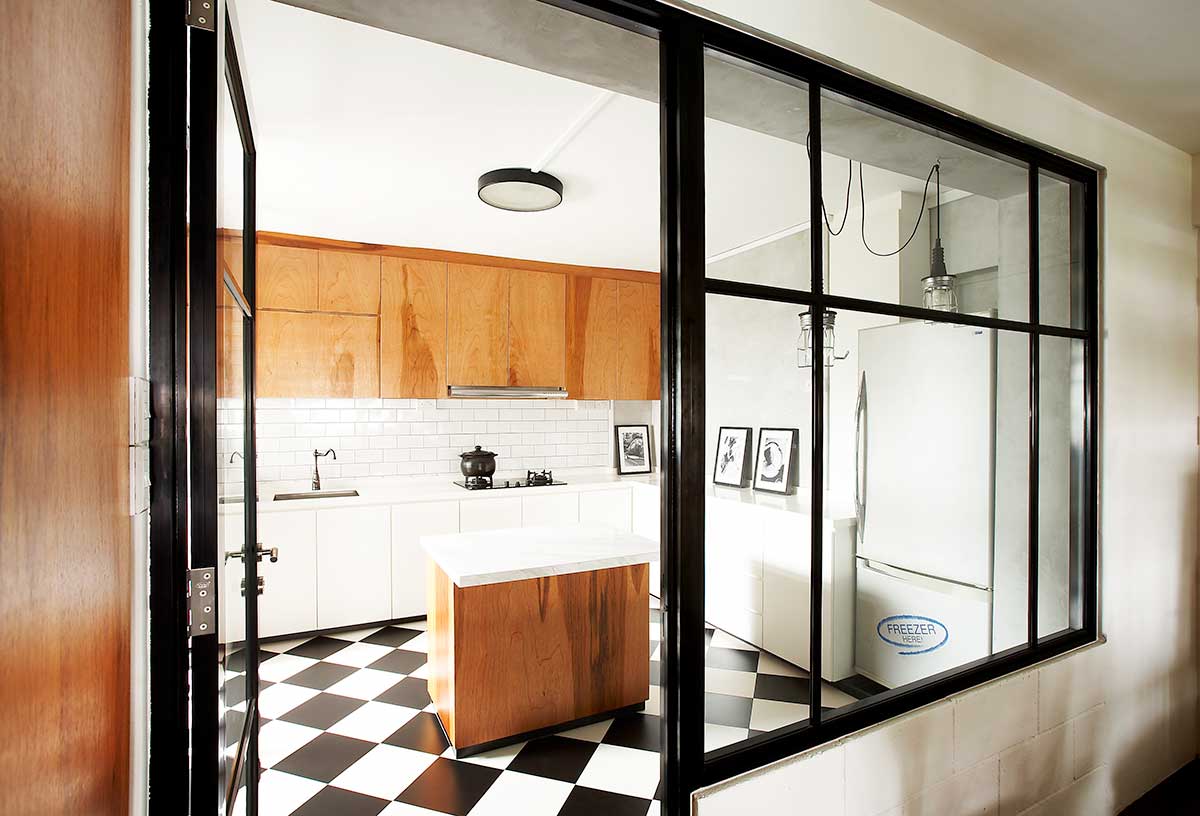
Image credit: three-d conceptwerke
One Wall
Normally seen in small homes, one-wall kitchens make it difficult to have two cooks at one time. It’s most ideal for those who only do light cooking. Consider having a movable counter or foldable table to create more worktop space. Ideally, place the sink between the refrigerator and hob. This will aid clean up and food prep. Handle-less cabinet doors also minimise visual clutter and advised for open-plan homes.
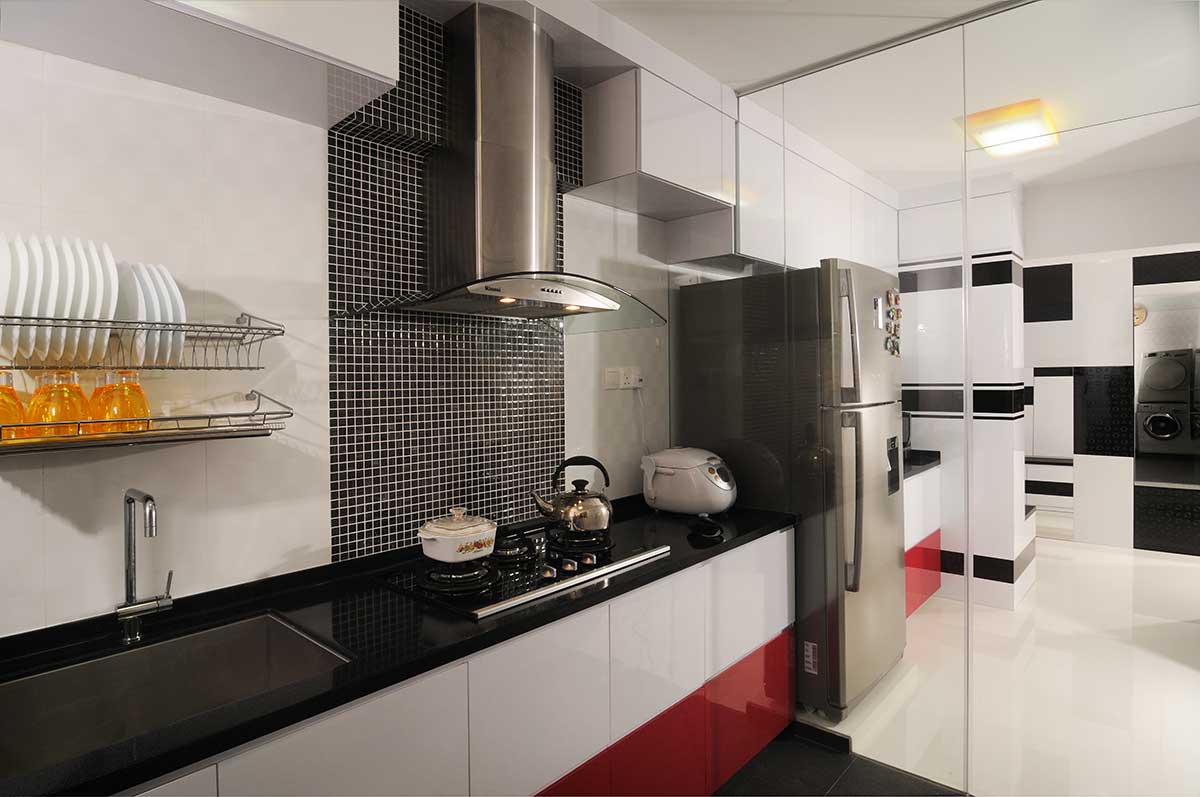
Image credit: The Orange Cube
This was adapted from an article originally written by Rossara Jamil in the June issue of SquareRooms.



